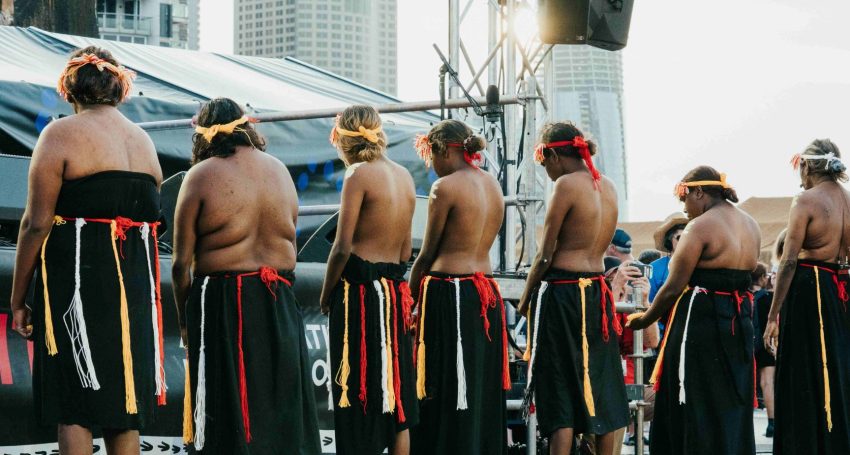Queensland Government's youth justice reform Bill is "racially prejudicial": Social Responsibilities Committee
Features
“Given that Queensland’s incarceration rate for Aboriginal and Torres Strait Islander children is 33 times that of non-Indigenous children The Bill will impact Aboriginal and Torres Strait Islander children in a grossly disproportionate way. We argue that The Bill therefore has racially prejudicial implications and will exacerbate and prolong the inter-generational trauma caused by assimilationist forcible removal policies (of the Stolen Generations); undermine self-determination; further alienate Aboriginal and Torres Strait Islander children from their families, cultures and communities; and, undermine gains made in Queensland’s Reconciliation processes and dialogues,” says The Very Rev’d Dr Peter Catt, with The Rev’d Canon Bruce Boase

The ACSQ’s Social Responsibilities Committee (along with separate submissions from the Queensland Aboriginal and Torres Strait Islander Child Protection Peak and the CEO of the Aboriginal and Torres Strait Islander Legal Service) has condemned a proposed Queensland Government youth justice Bill for its “racially prejudicial implications” and for the Government’s lack of consultation and overriding of its own Human Rights Act.
Committee Secretary
The Economics and Governance Committee Queensland Parliament
Parliament House
George Street
Brisbane
QLD 4000
The Social Responsibilities Committee
Anglican Church Southern Queensland (Diocese of Brisbane)
Strengthening Community Safety Bill 2023
24 February 2023
Dear Members,
This submission is made on behalf of the Social Responsibilities Committee (SRC) of the Anglican Church Southern Queensland (Diocese of Brisbane) (ACSQ). I am the chair of the Committee.
We are grateful to the members of the Economics and Governance Committee (Committee) for the opportunity to comment on the Strengthening Community Safety Bill 2023 (The Bill).
We welcome the opportunity to respond to The Bill. However, we note that because The Bill was introduced on 21 February 2023 with a submission deadline of 24 February 2023 that stakeholders were only given two and a half days to respond. The reporting deadline is also very tight having been set at 10 March 2023. Thus, we echo the Queensland Law Society’s position that the lack of appropriate consultation and news of a two-week reporting deadline is “proof the government are not prioritising youth justice by rushing it through.” These rushed consultation and reporting periods are gravely concerning given The Bill’s implications for some of Queensland’s most vulnerable youth and their families and communities.
While we support the Queensland Government’s commitment to making communities safer, including addressing why youth offend and seeking to reduce associated crime rates, the Anglican Church Southern Queensland’s Social Responsibilities Committee writes to express our opposition to the Queensland Government’s current proposal and instead asks that the Government develops strategies reflecting its previously stated commitment to pursue evidence-based youth justice reform.
While this submission focuses on the disproportionate impacts of The Bill on Aboriginal and Torres Strait Islander youth, we are broadly concerned that The Bill overrides the Queensland Human Rights Act 2019 (as acknowledged by Mark Ryan MP, the Minister for Police and Corrective Services) and will likely lead to significantly more children being jailed.
Advertisement
If the Queensland Government is committed to keeping all communities safe, legislation must protect our most vulnerable, including Aboriginal and Torres Strait Islander children.
In November 2022, the Queensland Law Society reported that:
“Aboriginal and Torres Strait Islander people are significantly overrepresented in Queensland’s criminal justice system. Although making up just 4.6% of Queensland’s population, Aboriginal and Torres Strait Islander people comprise 35% of the adult prison population and 62.6% of the youth and child prison population. The rate of incarceration for Aboriginal and Torres Strait Islander children is 33 times the rate of non-Indigenous children.”
On 29 November 2022, the Queensland Parliament passed a motion in support of the Uluru Statement from The Heart. This landmark statement, explains that:
“Proportionally, we are the most incarcerated people on the planet. We are not an innately criminal people. Our children are aliened from their families at unprecedented rates. This cannot be because we have no love for them. And our youth languish in detention in obscene numbers. They should be our hope for the future. These dimensions of our crisis tell plainly the structural nature of our problem. This is the torment of our powerlessness.”
Advertisement
Given that Queensland’s incarceration rate for Aboriginal and Torres Strait Islander children is 33 times that of non-Indigenous children The Bill will impact Aboriginal and Torres Strait Islander children in a grossly disproportionate way. We argue that The Bill therefore has racially prejudicial implications and will exacerbate and prolong the inter- generational trauma caused by assimilationist forcible removal policies (of the Stolen Generations); undermine self-determination; further alienate Aboriginal and Torres Strait Islander children from their families, cultures and communities; and, undermine gains made in Queensland’s Reconciliation processes and dialogues.
We are therefore compelled to ask:
- What level of consultation did the Queensland Government undertake with Aboriginal and Torres Strait Islander communities before and during the drafting of The Bill?
- And, what level of consultation does the Queensland Government intend to undertake with Aboriginal and Torres Strait Islander communities during the reporting period?
If the Queensland Government seeks to be consistent with its own Human Rights Act and statements and Parliamentary motions, then it must seek alternatives to harshening what are already the nation’s harshest youth justice laws. We instead call upon the Queensland Government to pursue evidence-based youth justice reform.
A recent open letter by PeakCare Queensland, a peak child protection body comprising more than 50 expert and other NGO members, states that:
“When First Nations leaders and organisations have been able to design and manage responses to youth crime within their communities, the results have been impressive. Governments need to get out of the way and let First Nations leaders lead. This means making a genuine commitment to self-determination by First Nations peoples and resourcing of their communities to deliver local responses that they, more than anyone else, know will work best.”
If the Queensland Government is genuinely intent on keeping all communities safe, any response to addressing youth crime must include diverting children 13 years and under from the criminal justice system. This is because the younger children are when they first engage the justice system, the more likely they will re-offend.
Related to this matter is the highly concerning “Offence to breach conditions of bail” at Section 29(2), which introduces breach of bail as an offence for children. This Section is especially disturbing given The Bill identifies that the Section is “incompatible with human rights” and inconsistent with the Human Rights Act 2019.
The SRC calls for the Queensland Government to uphold the Human Rights Act and to significantly invest in evidence-based solutions that build the capacity of Aboriginal and Torres Strait Islander communities to support, nurture and educate their children.
For example, PeakCare Queensland’s open letter states that:
“By the time children enter detention, over 50% have not been attending school. It is within the classroom that anti-social behaviours usually begin to emerge. Non-attendance at schools and high rates of suspensions and exclusions are frequent precursors to children’s involvement with the youth justice system. Better resourcing of teachers and schools with the programs and supports they need to keep children engaged in schooling will help stop problems before they start.”
Instead of the Queensland Government seeking to hurriedly “arrest their way out” of addressing youth crime and bail breaches, we ask that the Queensland Government upholds its own Human Rights Act and commitments (including effective Parliamentary motions) and seek meaningful long-term solutions in consultation with the communities of our most vulnerable youth, especially those of young Aboriginal and Torres Strait Islander peoples.
Yours sincerely,
The Very Rev’d Dr Peter Catt
Chair
Social Responsibilities Committee Anglican Church Southern Queensland
With the support of,
The Rev’d Canon Bruce Boase,
St John’s Anglican Cathedral Honorary Canon and Wakka Wakka man
Editor’s note: The Social Responsibilities Committee’s submission and Anglicare Southern Queensland’s submission may be downloaded from the Queensland Parliament website.






